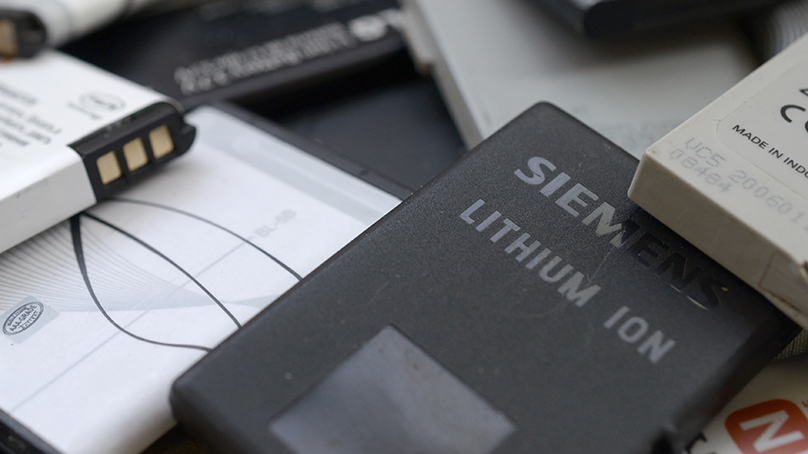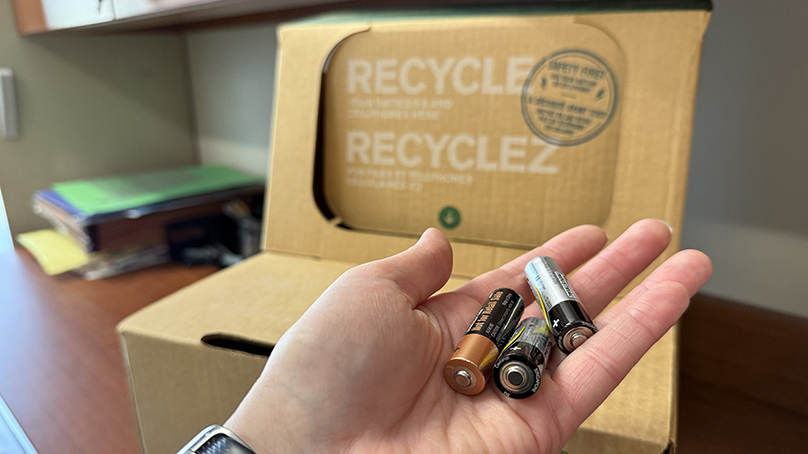
People tossing things with batteries in the trash are unknowingly causing fires at our landfill.
A recent spike in fires at the Brady Road Resource Management Facility has been linked to rechargeable lithium ion batteries. The problem also extends to the Materials Recycling Facility (MRF). That's where Winnipeg’s recyclables are processed.
“We have seen about half a dozen of these fires over the past couple of months, and the problem seems to be getting worse,” said Mark Kinsley, the City of Winnipeg’s Superintendent of Waste Diversion.
These fires are putting our staff and our facilities at risk.
It all starts when people put items with lithium ion batteries in the garbage or recycling. The batteries can catch fire when they come into contact with heavy machinery or sorting equipment.
Lithium ion battery fires are especially dangerous because they can last a long time and are hard to put out. They can also re-ignite even after the fire appears out.
“Please do not put any batteries, including items with batteries that can’t be removed, in the garbage or the recycling,” said Kinsley.
What has lithium ion batteries?
Lithium ion batteries are found in many common rechargeable items. They’re used to power laptops, tablets, cell phones, smart watches, and other personal electronics. You can also find them in:
- Electric toothbrushes
- Vaping or e-cigarette products
- E-bikes and e-scooters
- Some toys
- Some power tools
- Some greeting cards
How to get rid of batteries
The safest way to get rid of items with lithium ion batteries is to take them to a 4R Winnipeg Depot.
You should remove the batteries from the item if it’s safe and easy to do so. Bring them to the 4R Winnipeg Depot and dispose the rest of the item in the appropriate place. If you can’t safely remove the batteries, bring the whole item.
Do not attempt to remove the batteries from personal electronics like laptops or cell phones before bringing them to a 4R Winnipeg Depot.

Regular household batteries are also a fire risk and should not go in the garbage or recycling. You can take these types of batteries to a 4R Winnipeg Depot, or one of our library branches.
You can also drop off household batteries to at many local retailers. Recycle Your Batteries Canada has a searchable list of battery recycling locations.
Stay safe around batteries
So many of our household items run on batteries. It's important to use and charge them safely.
If you see a lithium-ion battery fire, close the door and leave the area immediately. Make sure to call 9-1-1 from a safe outdoor location. Lithium-ion batteries can catch on fire and re-ignite even once you think the fire is out.
The Winnipeg Fire Paramedic Service has more tips for how to use and store batteries so your family stays safe.
